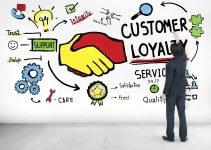Some experts estimate that up to 60 percent of candidates are expected to take workplace assessments. While many organizations use personality testing for career development, about 22 percent use it to evaluate job candidates, according to the results of a 2014 survey of 344 Society for Human Resource Management members. As the years pass, these numbers will only grow. Learning the details of career personality tests can help you properly implement them in your workplace, or how to handle them when they come up in hiring situations.
Many assessments are based on the Five Factor Model, which includes openness to experience, conscientiousness, extroversion, agreeableness, and neuroticism. The assessments that use this model are the most reliable, because they are most often chosen for evaluation by researchers.
When it comes to hiring, it is necessary to choose the most reliable sources. The strongest personality tests to use in the hiring process are the ones that
- Measure sustainable traits that don’t change over time
- Are normative in nature, comparing one’s applicant scores against others
- Provide a candor scale to indicate how accurate the answers and results are
- Have a high reliability
- Have been shown to be valid predictors of job performance
Career personality tests are wonderful tools to provide guidelines for hiring and understanding employees. Remember to take the information and use it constructively; do not let the test results make the decision for you. When used correctly, career personality tests can add a whole new efficiency aspect to the hiring process.




